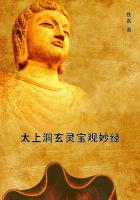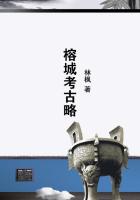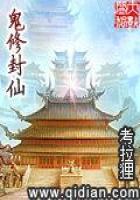The Russian autocracy as we see it now is a thing apart. It is impossible to assign to it any rational origin in the vices, the misfortunes, the necessities, or the aspirations of mankind. That despotism has neither an European nor an Oriental parentage; more, it seems to have no root either in the institutions or the follies of this earth. What strikes one with a sort of awe is just this something inhuman in its character. It is like a visitation, like a curse from Heaven falling in the darkness of ages upon the immense plains of forest and steppe lying dumbly on the confines of two continents: a true desert harbouring no Spirit either of the East or of the West.
This pitiful fate of a country held by an evil spell, suffering from an awful visitation for which the responsibility cannot be traced either to her sins or her follies, has made Russia as a nation so difficult to understand by Europe. From the very first ghastly dawn of her existence as a State she had to breathe the atmosphere of despotism; she found nothing but the arbitrary will of an obscure autocrat at the beginning and end of her organisation. Hence arises her impenetrability to whatever is true in Western thought. Western thought, when it crosses her frontier, falls under the spell of her autocracy and becomes a noxious parody of itself. Hence the contradictions, the riddles of her national life, which are looked upon with such curiosity by the rest of the world. The curse had entered her very soul; autocracy, and nothing else in the world, has moulded her institutions, and with the poison of slavery drugged the national temperament into the apathy of a hopeless fatalism. It seems to have gone into the blood, tainting every mental activity in its source by a half-mystical, insensate, fascinating assertion of purity and holiness. The Government of Holy Russia, arrogating to itself the supreme power to torment and slaughter the bodies of its subjects like a God-sent scourge, has been most cruel to those whom it allowed to live under the shadow of its dispensation. The worst crime against humanity of that system we behold now crouching at bay behind vast heaps of mangled corpses is the ruthless destruction of innumerable minds.
The greatest horror of the world--madness--walked faithfully in its train. Some of the best intellects of Russia, after struggling in vain against the spell, ended by throwing themselves at the feet of that hopeless despotism as a giddy man leaps into an abyss. An attentive survey of Russia's literature, of her Church, of her administration and the cross-currents of her thought, must end in the verdict that the Russia of to-day has not the right to give her voice on a single question touching the future of humanity, because from the very inception of her being the brutal destruction of dignity, of truth, of rectitude, of all that is faithful in human nature has been made the imperative condition of her existence.
The great governmental secret of that imperium which Prince Bismarck had the insight and the courage to call LE NEANT, has been the extirpation of every intellectual hope. To pronounce in the face of such a past the word Evolution, which is precisely the expression of the highest intellectual hope, is a gruesome pleasantry. There can be no evolution out of a grave. Another word of less scientific sound has been very much pronounced of late in connection with Russia's future, a word of more vague import, a word of dread as much as of hope--Revolution.
In the face of the events of the last four months, this word has sprung instinctively, as it were, on grave lips, and has been heard with solemn forebodings. More or less consciously, Europe is preparing herself for a spectacle of much violence and perhaps of an inspiring nobility of greatness. And there will be nothing of what she expects. She will see neither the anticipated character of the violence, nor yet any signs of generous greatness. Her expectations, more or less vaguely expressed, give the measure of her ignorance of that NEANT which for so many years had remained hidden behind this phantom of invincible armies.
NEANT! In a way, yes! And yet perhaps Prince Bismarck has let himself be led away by the seduction of a good phrase into the use of an inexact form. The form of his judgment had to be pithy, striking, engraved within a ring. If he erred, then, no doubt, he erred deliberately. The saying was near enough the truth to serve, and perhaps he did not want to destroy utterly by a more severe definition the prestige of the sham that could not deceive his genius. Prince Bismarck has been really complimentary to the useful phantom of the autocratic might. There is an awe-inspiring idea of infinity conveyed in the word NEANT--and in Russia there is no idea. She is not a NEANT, she is and has been simply the negation of everything worth living for. She is not an empty void, she is a yawning chasm open between East and West; a bottomless abyss that has swallowed up every hope of mercy, every aspiration towards personal dignity, towards freedom, towards knowledge, every ennobling desire of the heart, every redeeming whisper of conscience. Those that have peered into that abyss, where the dreams of Panslavism, of universal conquest, mingled with the hate and contempt for Western ideas, drift impotently like shapes of mist, know well that it is bottomless; that there is in it no ground for anything that could in the remotest degree serve even the lowest interests of mankind--and certainly no ground ready for a revolution. The sin of the old European monarchies was not the absolutism inherent in every form of government; it was the inability to alter the forms of their legality, grown narrow and oppressive with the march of time. Every form of legality is bound to degenerate into oppression, and the legality in the forms of monarchical institutions sooner, perhaps, than any other. It has not been the business of monarchies to be adaptive from within.


